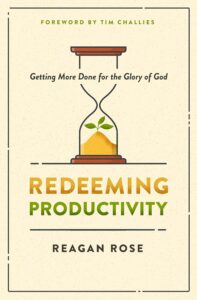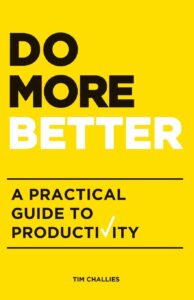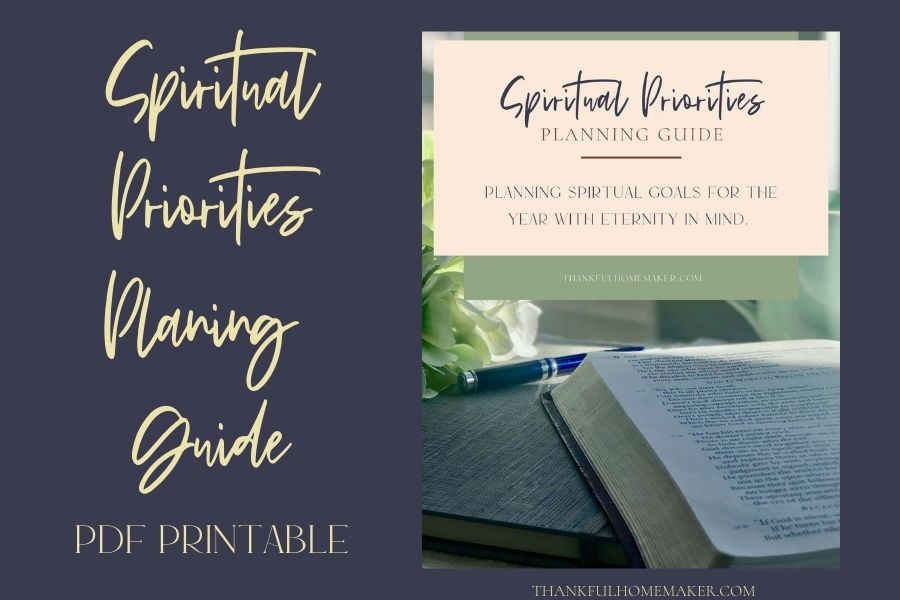EP 157: Planning with Purpose: Spiritual Priorities for the New Year
Inside: Setting spiritual priorities through a biblical lens helps us focus on glorifying God in every aspect of our lives. We will discuss the impact of such priorities on our daily spiritual growth and provide practical tips for setting and achieving spiritual goals.

As we usher in the New Year, many of us have goal-setting or New Year resolutions at the forefront of our minds. If they’re not fresh on our minds, we’re undoubtedly seeing the conversation about them all over social media and in the blogs and newsletters we read.
The Importance of Goals
These goal-setting exercises are good things. We all set goals, maybe we’re not sitting and writing them out, but we’re continually contemplating improvements in our homes, spiritual walks, parenting, relationships, health, and countless other areas.
Today’s podcast episode is an update on one I did back in 2017 on Spiritual Priorities. A few years have passed since then, and I’ve had several listeners inquire about an update, so that’s what we’re diving into today. This blog post is an abbreviated version of the podcast episode, so if you’re reading, I strongly encourage you to listen to the episode.
Listen to EP 157: Planning with Purpose: Spiritual Priorities for the New Year (45 minutes) or read a portion of it below (7 minutes):
Support Thankful Homemaker on Patreon
Resources Mentioned:
Prayer Mate App
Bible Memory App
Redeeming Productivity by Reagan Rose

Shopping for Time by Carolyn Mahaney

Do More Better by Tim Challies


Honoring the Lord in Goal Setting:
We’re looking at goal setting through a biblical lens. I still like to refer to my planning in various areas of my life as Spiritual Priorities instead of goals. But whatever term we use, it is essential for our goals to align with the wisdom of God’s Word.
The Westminster Shorter Catechism reminds us that the chief end of man is to glorify God and to enjoy Him forever. Therefore, the main purpose of our goals needs to be to glorify God.
As Christians desiring to lead productive lives that honor the Lord, let’s work through it together and see how we can set good goals. From these good goals, we need to determine what projects and habits need to be implemented to help our goals succeed and so we follow through with them.
Before we begin setting goals, we need to determine the areas of responsibility we deal with in our lives on a regular basis. Identifying our areas of responsibility helps us to set goals that focus on the key domains of our lives. We can better prioritize goals based on their importance in various areas of our lives.
Always mindful that the Lord is in control, we commit to being good stewards of our time, talents, and relationships. We plan and live with purpose, knowing that our generous God has entrusted us with many responsibilities. As we purpose and plan, we must hold everything with an open hand.
Importance of Scripture in Our Goals
I want to share a few verses that I keep in my memory as a reminder of our sovereign God at work in my life:
- Proverbs 16:3 – “Commit your work to the Lord, and your plans will be established.”
- Proverbs 16:9 – “The heart of man plans his way, but the Lord established his steps.”
- Proverbs 16:33 – “The lot is cast into the lap, but its every decision is from the LORD.”
- Job 42:2 – “I know that you can do all things, and that no purpose of yours can be thwarted.”
- Psalm 33:10-11: “The Lord foils the plans of the nations; he thwarts the purposes of the peoples. But the plans of the Lord stand firm forever, the purposes of his heart through all generations.”
These verses are a constant reminder that the Lord has control over our lives and that He works out all circumstances for our ultimate good and His glory. As we set our goals and priorities, we need to remember this truth.
My Spiritual Priorities
As I reflect on my spiritual priorities, I focus on seven areas that have influenced my walk with the Lord and my relationships over the years. These areas are inspired by a book that has been impactful in my journey called Shopping for Time by Carolyn Mahaney. The areas I focus on are:
- Grow in Godliness
- Love my Family
- Serve in the Church
- Fellowship with Christians
- Evangelize non-Christians
- Attend to my Work
- Care for my Physical Health
These areas might not resonate with everyone, and that’s okay. As Christian women, our priorities may align in many ways, but it’s crucial to remember that they should always line up with God’s Word.
Benefits of Goal Setting
Before we delve into the specifics of goal setting, let’s discuss the ‘why.’ We have established that our ultimate purpose is to glorify God in all aspects of life. By setting goals that align with biblical principles and values, we can use our time, talents, and resources in a way that honors the Lord and reflects His character.
Setting goals helps us live intentional lives. As we seek the Lord’s guidance through His Word and prayer in setting our goals, we can gain a clearer sense of what it looks like to honor Him in various situations and relationships.
Practical Steps to Setting Goals
Now that we understand why we set goals and the areas of responsibility, let’s look at how this can be put into practice.
I have a Spiritual Priorities Planning Guide PDF to help walk you through, but you can start with a blank piece of paper and list your areas of responsibility.
Take each priority one at a time – you can put each one on its own sheet of paper. Take the time to pray over each area and see how you’re doing in it. Ask yourself some questions to help you determine, evaluate, and set spiritual priorities in each of them.
For each area, think about where you’re currently at, where you want to be, and how you can get there. Ask God for wisdom and guidance as you evaluate each area and set your goals.
When you work through each area, you might end up with a lengthy list. Don’t panic or feel overwhelmed. You won’t deal with all of these at once or even in a single year. Remember, it’s a process. Here are the categories and a few questions to help you evaluate each:
- Grow in Godliness: This should be a priority. Ask:
- How can I grow closer to God?
- Are there aspects of my character that need to change according to God’s Word?
- Am I battling any sins without seeking God’s help?
- How can I ensure consistent prayer, Bible study, and worship?
- Love my Family: Consider:
- Which family relationship should I give more attention to this season?
- How can I show Christ’s love to my family?
- How can I encourage my family members in their faith?
- Serve in the Church: Reflect on:
- Am I using the spiritual gifts God gave me?
- How can I contribute to my church community’s needs?
- Are there any service opportunities where I can volunteer?
- Fellowship with Christians: Ask:
- How can I deepen relationships with fellow believers?
- Is there someone I can mentor or seek mentorship from?
- How can I support and encourage my Christian brothers and sisters?
- Evangelize Non-Christians: Consider:
- What opportunities exist to share Christ’s love with non-believers?
- Are there specific people I can pray for and introduce to the Gospel?
- How can I engage in intentional faith conversations without compromising my convictions?
- Attend to my Work: Reflect on:
- How can I be more effective in my work?
- Do I approach my work with a thankful heart, the right attitude, and a Christ-centered perspective?
- Does my family see my love for Christ lived out in my daily tasks?
- Care for My Physical Health: Ask:
- Am I properly caring for my physical body?
- What habits can maintain a healthy balance between rest, exercise, and nutrition?
- Can I view physical health as a stewardship responsibility entrusted to me by God?
These questions are not exhaustive, but they can help you reflect on your spiritual priorities. They’re intended to encourage intentional actions that honor the Lord in all areas of your life.
One Thing
As we begin to plan our spiritual priorities for the year, it can be daunting to look at our extensive list of tasks and goals. To help us navigate this, Carolyn offers three guiding statements in her book:
- Sit and plan
- Consider people
- Plan to depend
These statements remind us to take time to quietly reflect on our intentions, to think about the people in our lives, and to rely on God’s guidance.
Our lives consist of changing seasons. For instance, my list today is drastically different from what it was 20 years ago when I still had children at home.
A quote from the book reminds us of who is in control:
“Scripture provides ample evidence that God sets the boundaries for each season…He is in complete control and sovereignly rules over every season of our lives. And his purpose for our lives in each season ultimately cannot be frustrated.”
Looking at the long list of tasks, we should remind ourselves that our good God is in control of every season and aspect of our lives. But where to start? We can’t change every area at once, so it’s important to prioritize one or two areas to focus on for the next three to six months.
When you sit and plan, consider your relationships. Prioritize the people you want to spend time with and identify how you can make investing in these relationships a priority.
A list like this might include quick tasks as well as long-term projects. For instance, updating my prayer list with church family members is a quick task, but planning on updating the basement is a long-term goal. Most of the time, the areas that need the most change will naturally rise to the top of our list.
As you plan, remember to break down larger goals into smaller, manageable steps. For example, if I want to work on scripture memory, I need to identify the scriptures to memorize, enter them into my Bible Memory App, schedule time to memorize it, gather resources for deeper study, and integrate this practice into my morning routine with the Lord.
By focusing on a few priorities at a time, we can foster growth in the areas that matter most to us. Approaching our planning in this way can help us navigate the various seasons of our lives with wisdom and purpose.
Final Thoughts
As we sit and plan our goals, we must keep in mind that we’re not alone in this process. Just as Jesus sought solitude to receive guidance from His Father (Luke 5:15-16), we too must turn to prayer and the Word of God for direction.
Yet, our plans and goals are not the be-all and end-all. Our ultimate purpose is to build a relationship with God, acknowledging His sovereignty in all things. Like Nehemiah, we should strive for a state of dependency where prayer becomes as natural as breathing, ensuring that our plans align with God’s.
I want to leave you with the last paragraph from the book Shopping for Time:
“In the end, our highest goal is not flawless execution of our plans or increased productivity. It’s our relationship with God, walking in dependence upon him throughout the day. We should not be more consumed with the completion of our- to-do-list than pleasing and glorifying our Savior. Whether we’re sitting down to map our day, simplifying our to-do list, or receiving an interruption as a ‘sovereign delivery,’ we must, above all, plan to depend.”
Shopping for Time
Charles Bridges reminds us – “God loves to be consulted.”






Hi Marcy,
My name is Jessy. I have been listening to your podcast for a bit and am so grateful for your encouragement.
I am writing to ask about the prayer app you mentioned in this episode. I can’t seem to find it referenced here. Have a Scripture memory app that has been invaluable to me, but wanted to check out the prayer one. Thank you!
Hello Jessy, I am so sorry I missed that link – I knew I was missing something lol. Thank you so much – it is the PrayerMate App.